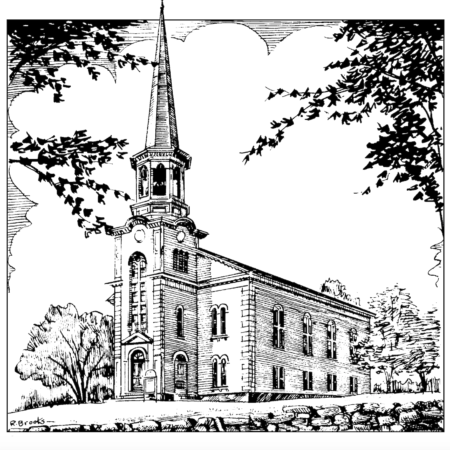Come and See
John 1:43–51
43The next day Jesus decided to go to Galilee. He found Philip and said to him, “Follow me.” 44Now Philip was from Bethsaida, the city of Andrew and Peter. 45Philip found Nathanael and said to him, “We have found him about whom Moses in the law and also the prophets wrote, Jesus son of Joseph from Nazareth.” 46Nathanael said to him, “Can anything good come out of Nazareth?” Philip said to him, “Come and see.” 47When Jesus saw Nathanael coming toward him, he said of him, “Here is truly an Israelite in whom there is no deceit!” 48Nathanael asked him, “Where did you get to know me?” Jesus answered, “I saw you under the fig tree before Philip called you.” 49Nathanael replied, “Rabbi, you are the Son of God! You are the King of Israel!” 50Jesus answered, “Do you believe because I told you that I saw you under the fig tree? You will see greater things than these.” 51And he said to him, “Very truly, I tell you, you will see heaven opened and the angels of God ascending and descending upon the Son of Man.”
Historical Context
This text, which falls during the season of Epiphany, is an epiphany. Epiphanies tend to transform people. This is seen in Nathaniel’s change and in an epiphany-induced change that Martin Luther King, Jr.’s describes in his book, Stride Toward Freedom:
I was ready to give up. With my cup of coffee sitting untouched before me, I tried to think of a way to move out of the picture without appearing a coward. In this state of exhaustion, when my courage had all but gone, I decided to take my problem to God. With my head in my hands, I bowed over the kitchen table and prayed aloud.
The words I spoke to God that midnight are still vivid in my memory. “I am here taking a stand for what I believe is right. But now I am afraid. The people are looking to me for leadership, and if I stand before them without strength and courage, they too will falter. I am at the end of my powers. I have nothing left. I’ve come to the point where I can’t face it alone.
At that moment, I experienced the presence of the Divine as I had never experienced God before. It seemed as though I could hear the quiet assurance of an inner voice saying: “Stand up for justice, stand up for truth; and God will be at your side forever.” Almost at once my fears began to go. My uncertainty disappeared. I was ready to face anything.1
Martin Luther King, Jr. was changed by this epiphany often referred to as his “vision in the kitchen.” Nathaniel’s epiphany, in which he suddenly could see clearly who Jesus was, changed Nathaniel, who, then, proclaimed Jesus as Rabbi, Son of God, King of Israel.
Theme: Come and See
Interesting to ponder the way the mobile God finds people who are not particularly on the hunt for God. And then Philip “found” Nathanael. One of the ways God finds people is through God’s people. Jesus finds not one, not even two, but four, and eventually more.
Philip has so little to go on—and yet he has everything: he has seen Jesus’ face. So he finds Nathanael, who is skeptical. Philip does not launch into any logic; he alludes to Scripture but does not quote anything. He grabs him by the hand and says “Come and see” (verse 46). That is the witness, right? Not a sledgehammer of truth, but an experience that makes you sure that if somebody else simply saw, it would be enough.
Our calling is always to Come and See. We do not ponder anybody at a distance. We go to others, to those not really expecting us. And we find both Jesus and ourselves there. A rich donor was visiting Calcutta and met Mother Teresa. She pulled out her checkbook and said “How can I help you in your work?” Mother Teresa pressed the checkbook back into the woman’s purse, took her by the hand and said, “Come and see.” She led the woman into an impoverished barrio, and found a hungry, frail child. “Care for her.” The woman took the child in her lap, wiped her brow, and fed her. Transformative. Mother Teresa was right when she said “When we care for a child, we are caring for Jesus. When we love the unloved, we are loving Jesus.”
This is the spiritual life. It is being out and about.


0 Comments